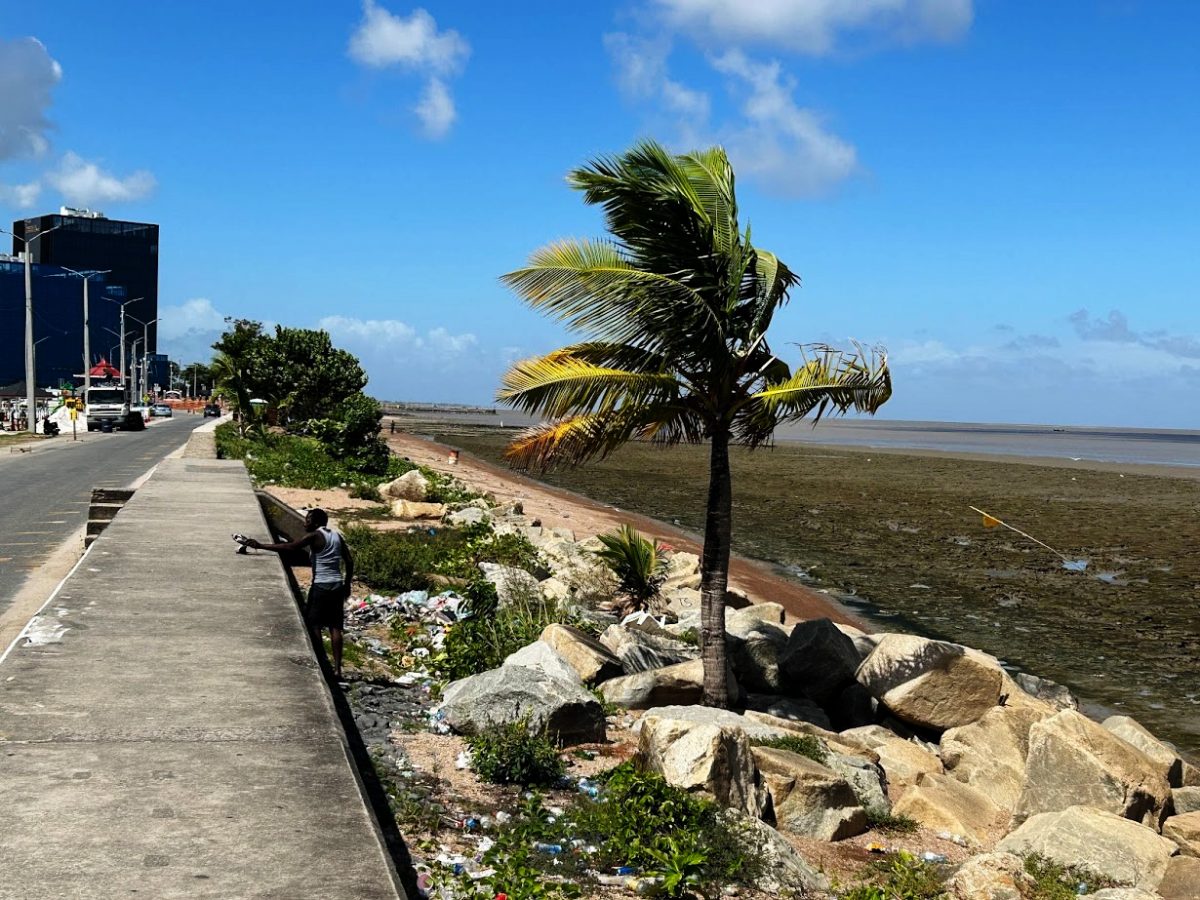Dear Editor,
It seems that the policy of promoting mangroves as a natural phenomenon to safeguard against high tides along Guyana’s coastline has become emotional and inconsistent.
I experienced what Sherwood Lowe expressed in his letter, “Mangrove forests and a visible sea and shoreline” (SN, Nov 26, 2023). Mr. Lowe lamented that East Coast Demerara residents “are experiencing not only a physical disconnect from the ocean but also a psychological and emotional one.” It was disconcerting as I strolled by the seawall recently and heard the waves but could not see them because mangrove trees took over the shores; it was a depressing experience!
Last week, I visited the Mangrove Research Centre to discuss what I perceive as an ill-conceived plan for the mangroves. Unfortunately, the Mangrove Project Coordinator was absent, so I spoke with her assistants. I inquired about the existence of a comprehensive plan for mangrove planting, but they informed me that only the coordinator could adequately address that question. I also asked about the impact of mangrove proliferation on communities—physical, social, and psychological impacts—and shared Mr. Lowe’s letter, but they did not respond to this query.
I have not received a proper response when I asked how mangroves affect local habitats such as courida trees. Regarding the impact on the fishing industry, the officer indicated that it is a positive factor for fishermen; I trust that she is correct in her conclusion.
While mangroves are revered for their ecological significance and act as a buffer against the raging ocean, the unchecked proliferation of mangroves is a cause for concern.
One troubling observation is that it seems only rural areas are targeted for mangrove proliferation; for instance, the Kitty seawall needs mangroves. Georgetown residents can come and enjoy the beauty of the ocean, but this luxury is not extended to people in rural areas. When I asked about this inconsistency, the officer in the Mangrove Research Office suggested that it is probably due to a difference in the “salinity of the soil”! Thus, Georgetown citizens and guests of Ramada Princess and Pegasus are considered privileged. This inconsistency is troubling!
We must balance preserving the invaluable benefits of mangroves and preventing their overgrowth. Responsible management practices, community engagement, and scientific intervention are essential to curb uncontrolled proliferation and ensure a sustainable coexistence between mangroves and the impacted communities. The mangrove policy should also be consistent and not elitist, as it appears to be now.
Yours truly,
Dr. Devanand Bhagwan






